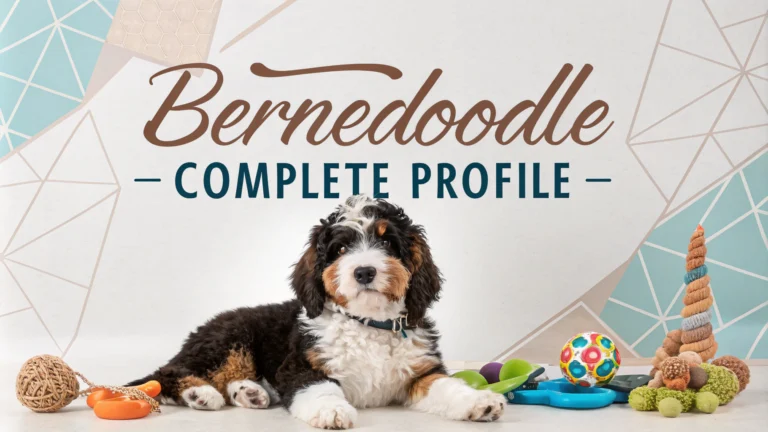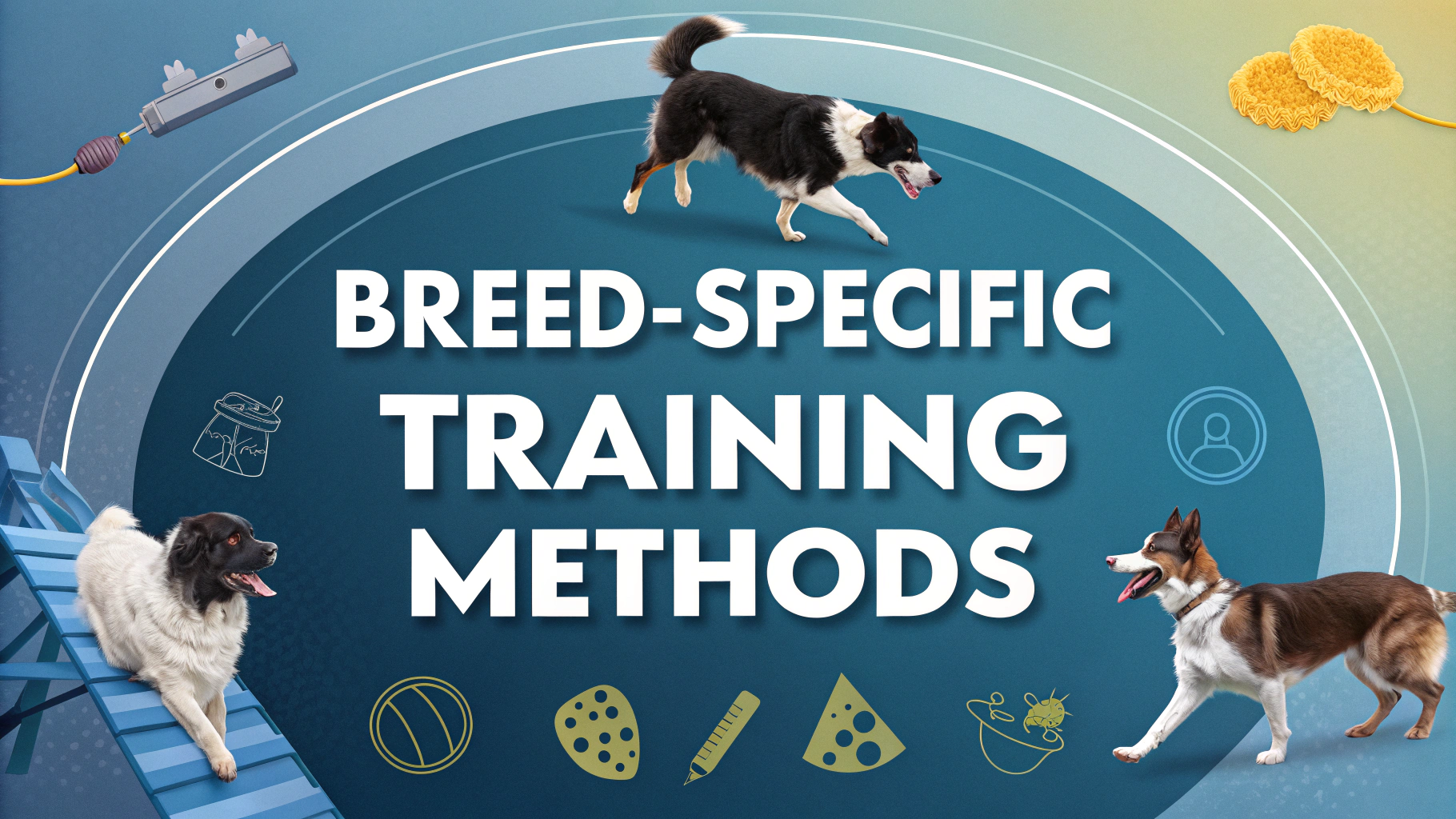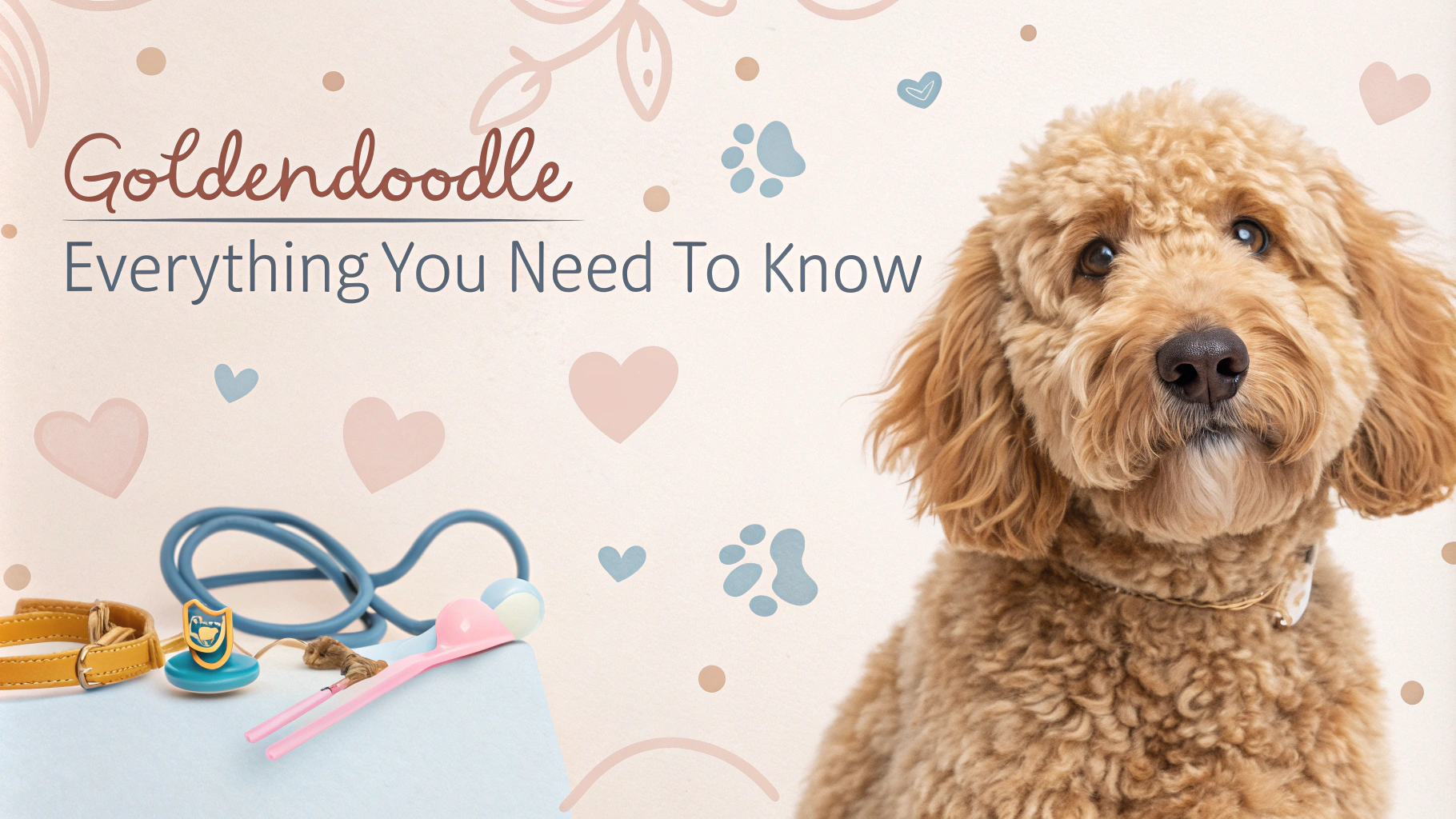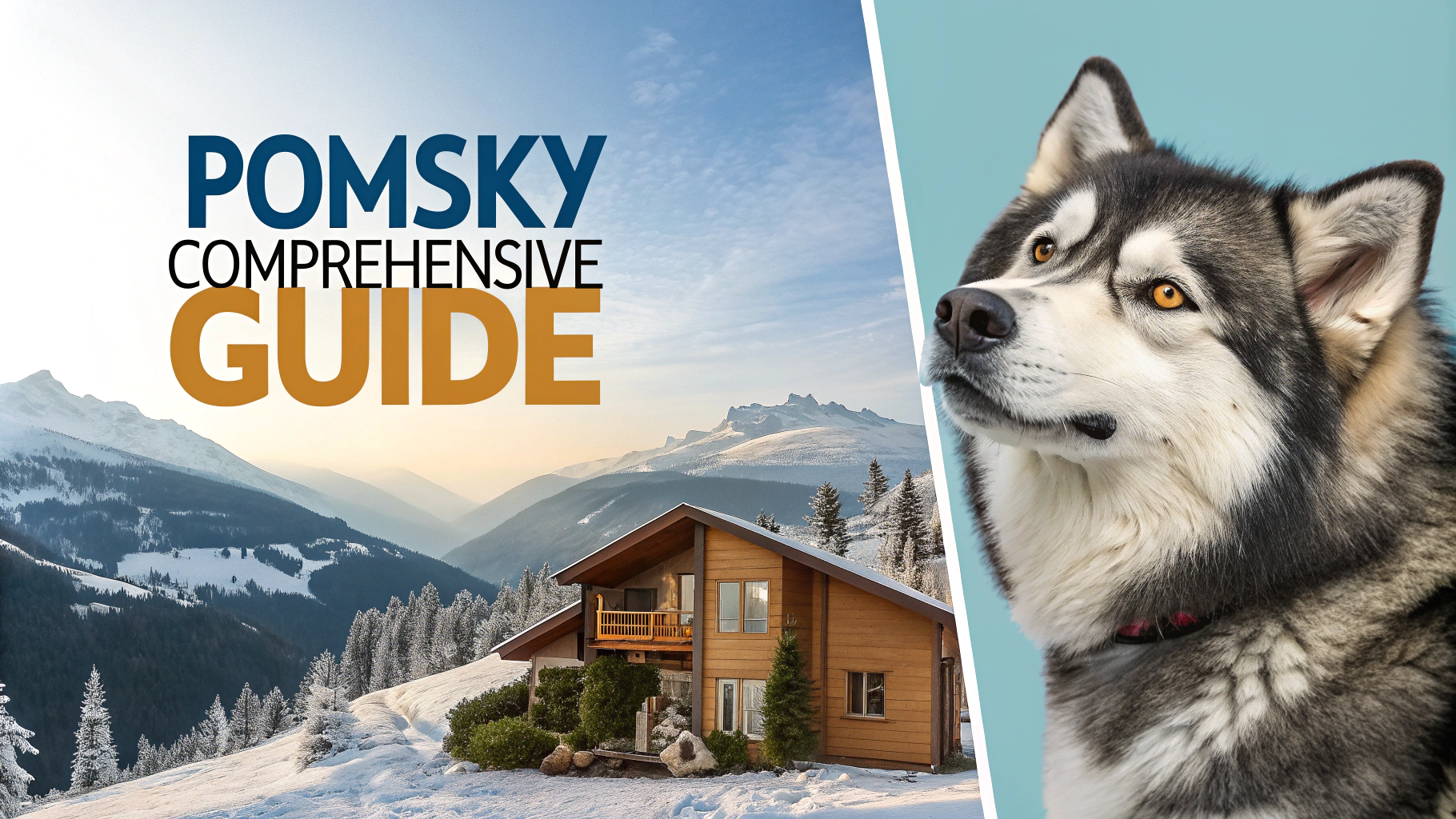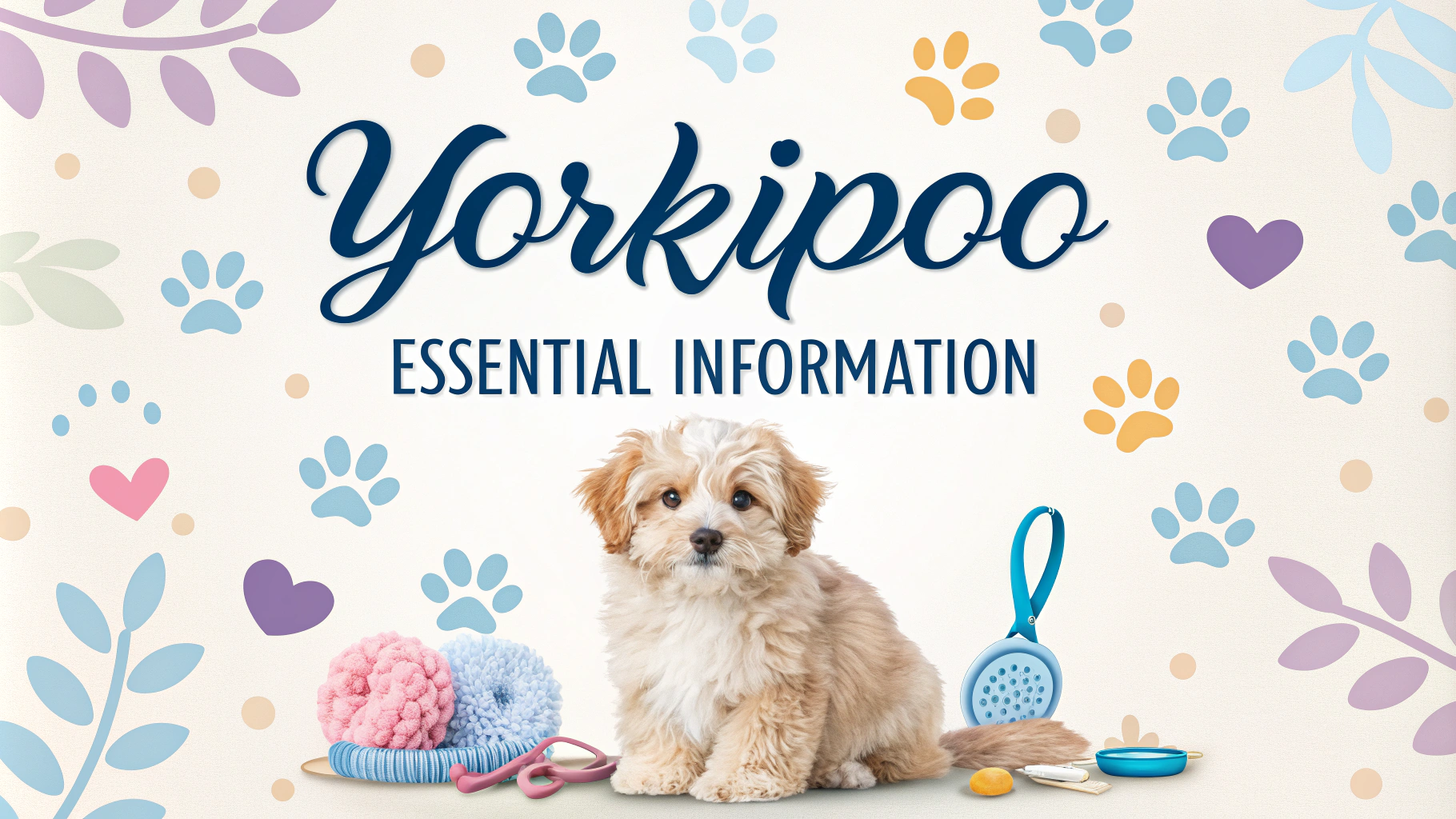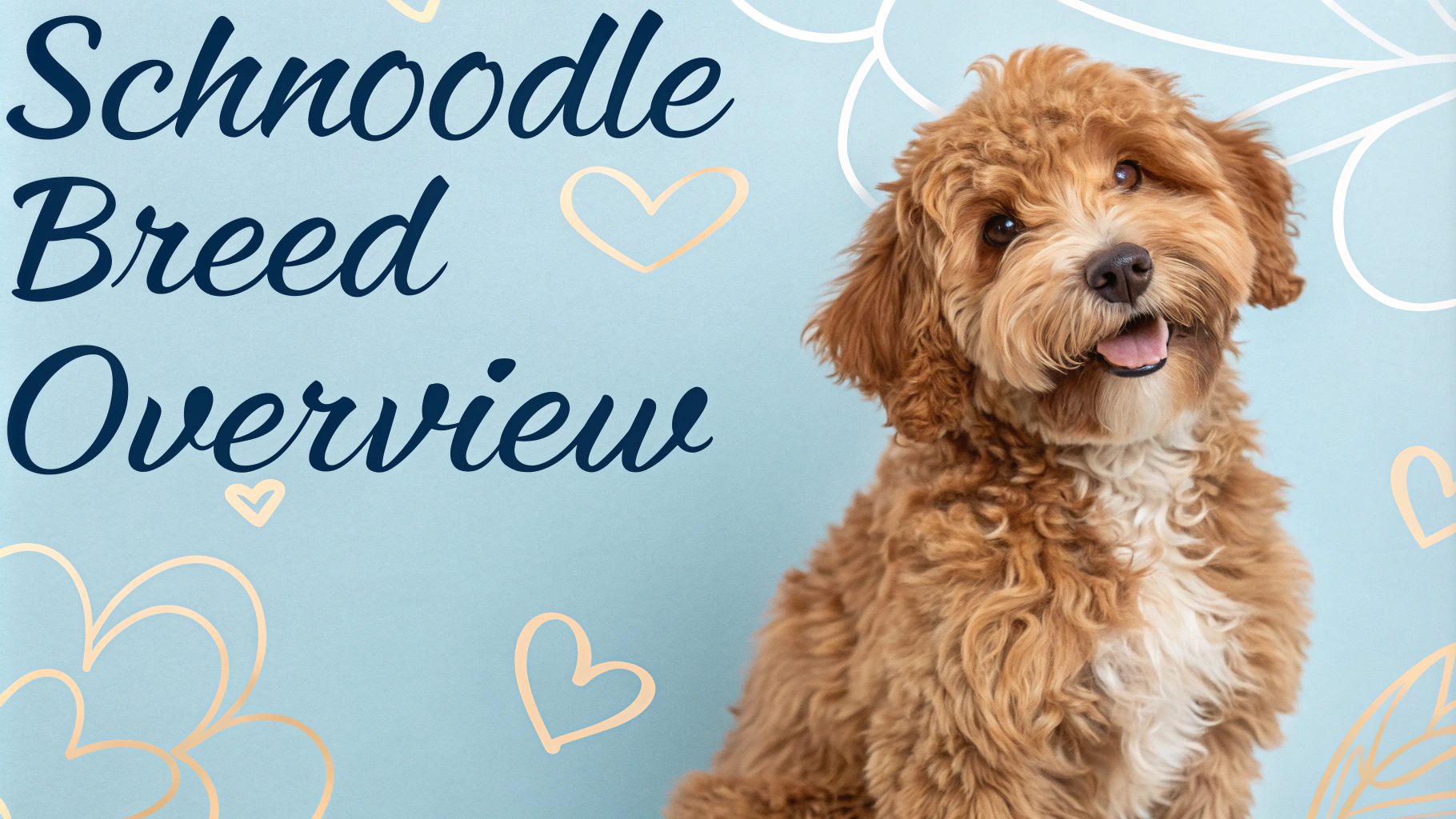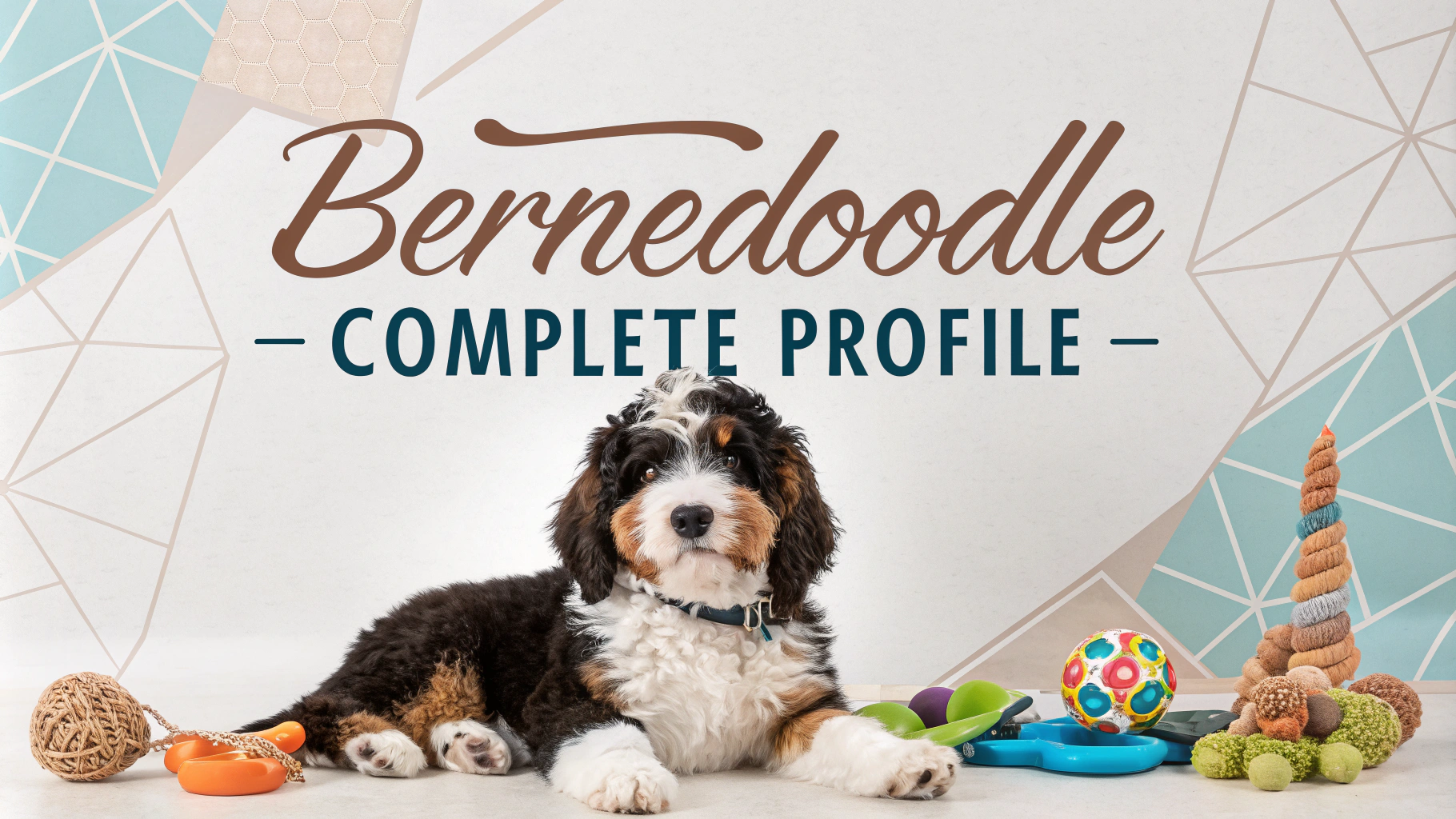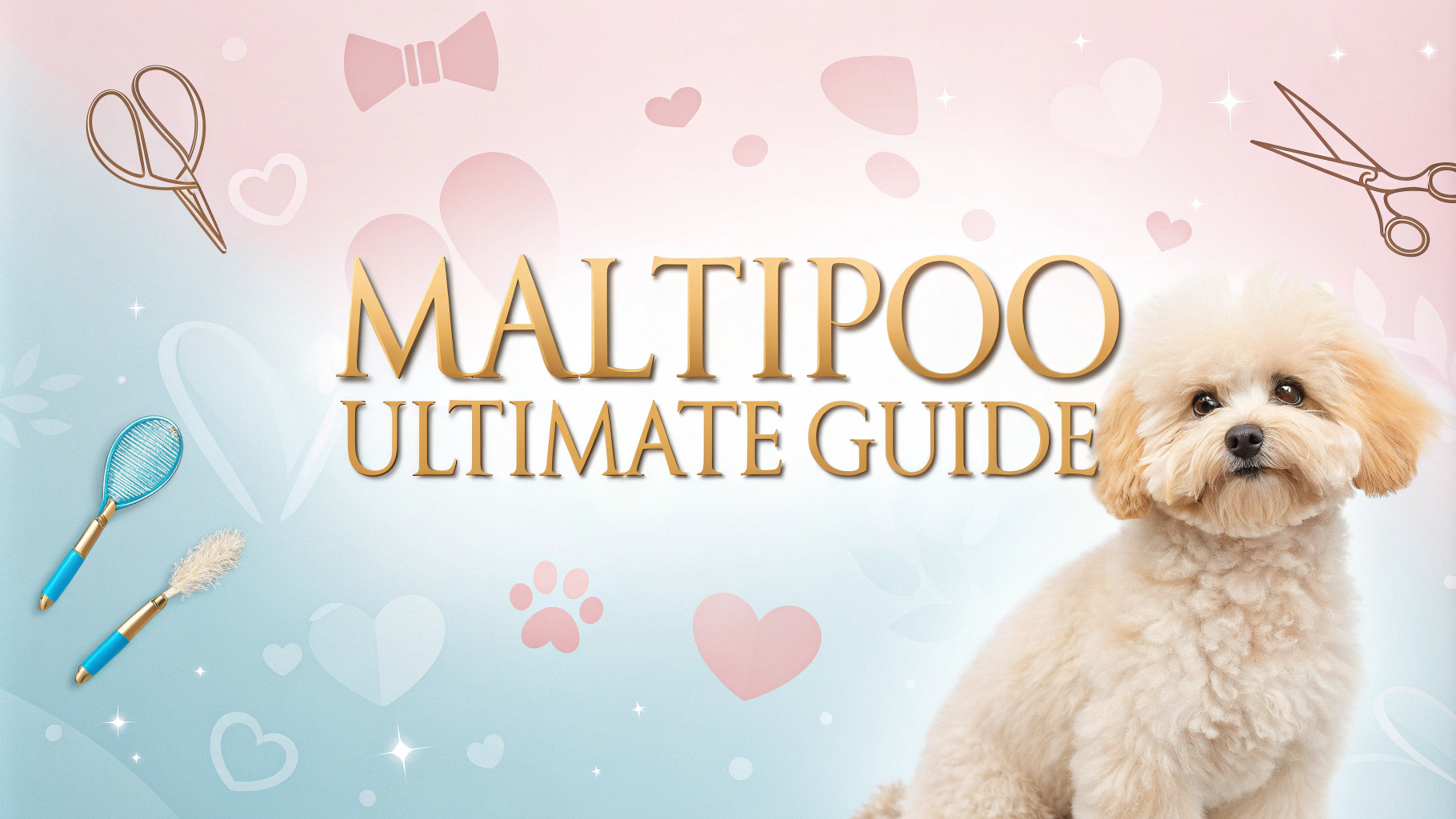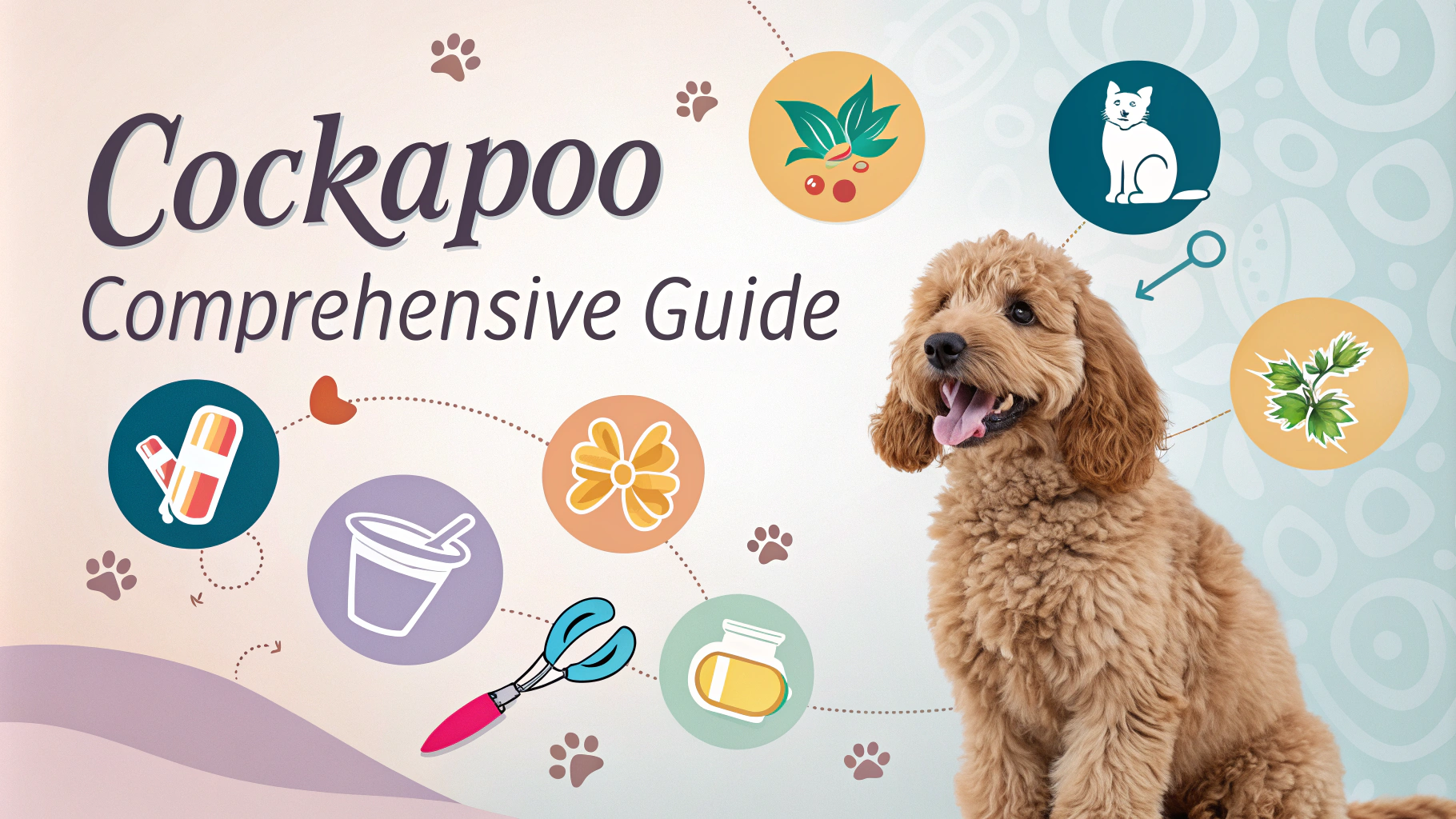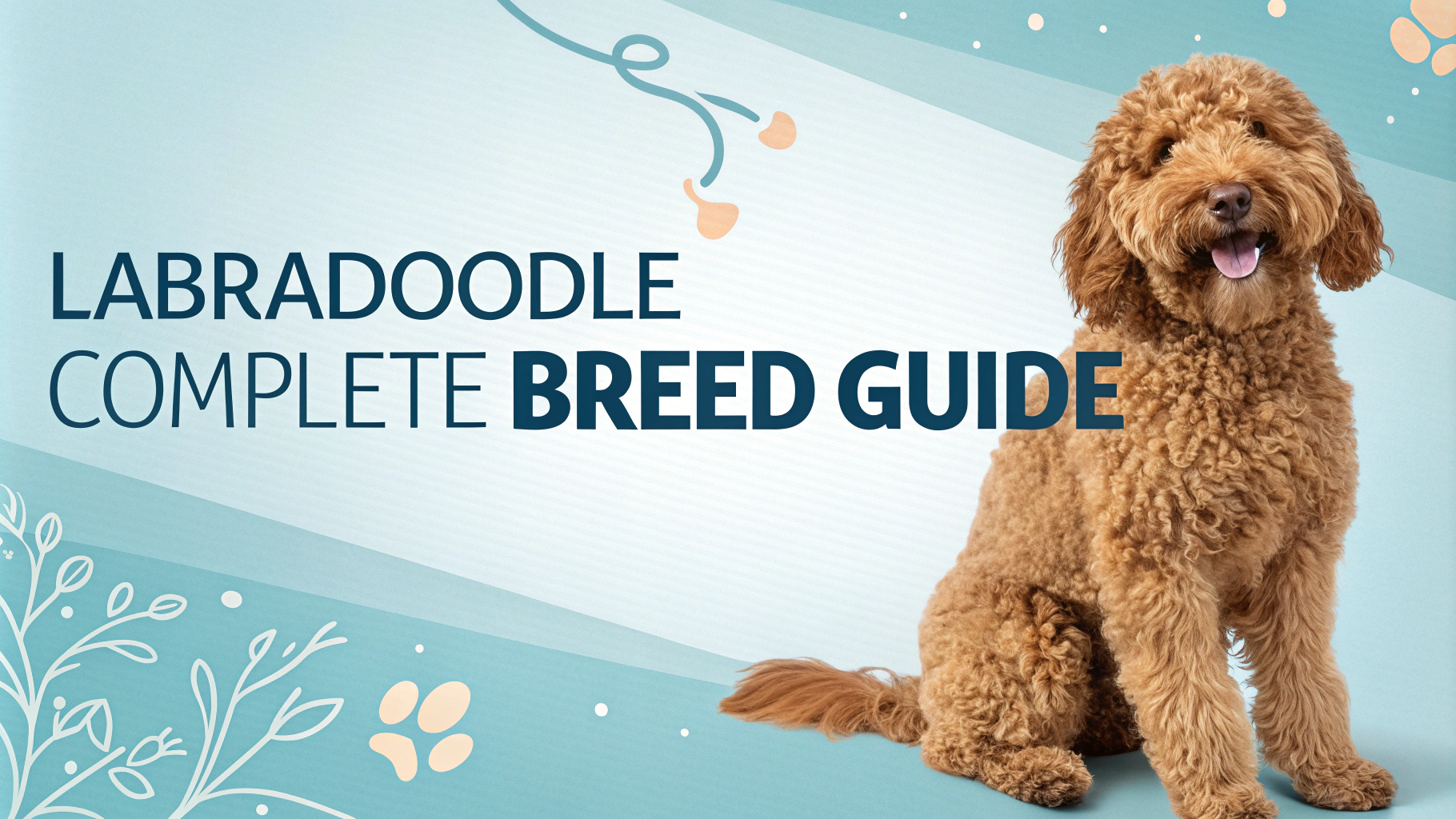The Bernedoodle is a designer breed developed by crossing a Bernese Mountain Dog with a Poodle.
Quick Facts
- Height: 10-29 inches
- Weight: 10-90 pounds
- Lifespan: 12-18 years
- Temperament: Loyal, intelligent, playful
- Colors: Black, black and white, tri-colored
Size Variations
| Type | Height | Weight |
|---|---|---|
| Standard | 23-29 inches | 50-90 lbs |
| Mini | 18-22 inches | 25-49 lbs |
| Tiny | 10-17 inches | 10-24 lbs |
Temperament and Personality
Bernedoodles combine the gentle nature of Bernese Mountain Dogs with the intelligence of Poodles.
These dogs make excellent family companions due to their patient and affectionate nature.
Exercise Requirements
- Daily walks: 30-60 minutes
- Mental stimulation through puzzle toys
- Regular play sessions
- Access to a fenced yard
Grooming Needs
Bernedoodles require regular grooming to maintain their coat health.
- Brush 2-3 times per week
- Professional grooming every 8-12 weeks
- Regular nail trimming
- Dental care: brush teeth 2-3 times weekly
Health Considerations
- Hip dysplasia
- Eye problems
- Skin issues
- Elbow dysplasia
Training Tips
Start training early to establish good behaviors and socialization.
- Use positive reinforcement
- Begin socialization at 8-16 weeks
- Maintain consistency in commands
- Focus on basic obedience first
Cost Considerations
- Puppy price: $2,000-$5,000
- Annual medical costs: $500-$1,000
- Food and supplies: $500-$800/year
- Grooming: $50-$100 per session
Finding a Reputable Breeder
Research breeders thoroughly and ask for health clearances for both parent breeds.
- Check references
- Visit the breeding facility
- Meet the parent dogs
- Review health certificates
Contact the American Kennel Club for breeder referrals and additional information about designer breeds.
Living Environment
Bernedoodles can adapt to various living situations but thrive best with adequate space.
- Suitable for houses with yards
- Can adapt to apartment living if properly exercised
- Need temperature-controlled environments
- Access to shaded outdoor areas
Diet and Nutrition
A balanced diet is essential for maintaining the health of your Bernedoodle.
- High-quality dog food appropriate for size and age
- 2-3 meals per day for adults
- Fresh water always available
- Monitor weight to prevent obesity
Socialization
Early Exposure
- Different people and animals
- Various environments
- Different sounds and experiences
- Regular visits to dog parks
Common Misconceptions
- All Bernedoodles are hypoallergenic
- They don’t require much exercise
- All have the same temperament
- Low-maintenance breeds
Conclusion
Bernedoodles make wonderful family pets for those who can provide proper care, training, and attention. While they require significant investment in time and resources, their loving nature and adaptability make them excellent companions. Consider your lifestyle, living situation, and commitment level before choosing this breed.
Remember that responsible ownership includes regular veterinary care, proper training, and lifetime commitment to the dog’s well-being. With proper care and attention, a Bernedoodle can be a loving and devoted family member for many years.
FAQs
- What is a Bernedoodle, and how was this breed developed?
A Bernedoodle is a designer dog breed that’s a cross between a Bernese Mountain Dog and a Poodle. The breed was first intentionally developed in 2003 by Sherry Rupke of SwissRidge Kennels to combine the intelligence of the Poodle with the calm, friendly nature of the Bernese Mountain Dog. - What are the different sizes of Bernedoodles available?
Bernedoodles come in three sizes: Standard (50-90 lbs), Mini (25-49 lbs), and Tiny/Toy (10-24 lbs). The size depends on whether a Standard, Miniature, or Toy Poodle is used in breeding. - Are Bernedoodles truly hypoallergenic?
While no dog is 100% hypoallergenic, Bernedoodles are generally considered low-shedding and more allergy-friendly, especially in F1b generations with higher Poodle percentages. However, the level of hypoallergenic properties varies between individual dogs. - What is the typical lifespan of a Bernedoodle?
Bernedoodles typically live between 12-18 years, with smaller varieties generally living longer than larger ones. They often have a longer lifespan than purebred Bernese Mountain Dogs due to hybrid vigor. - What kind of exercise requirements do Bernedoodles have?
Bernedoodles need moderate to high levels of exercise, typically requiring 30-60 minutes of active exercise daily. This can include walks, play sessions, and mental stimulation activities to keep them healthy and well-behaved. - How much grooming do Bernedoodles require?
Bernedoodles need regular grooming, including brushing 2-3 times per week and professional grooming every 8-12 weeks. Their coat can be wavy to curly, and without proper maintenance, they can develop matting and tangles. - What are common health issues in Bernedoodles?
Common health concerns include hip dysplasia, elbow dysplasia, eye problems, and skin issues. However, they generally experience fewer health problems than their parent breeds due to hybrid vigor. - Are Bernedoodles good family dogs?
Yes, Bernedoodles make excellent family pets. They are typically gentle, patient with children, and social with other pets. They inherit the friendly nature of both parent breeds and are known for their loyal and affectionate personalities. - How trainable are Bernedoodles?
Bernedoodles are highly trainable due to their intelligence inherited from the Poodle parent. They are eager to please and respond well to positive reinforcement training methods, though they can be slightly stubborn during adolescence. - What is the average cost of a Bernedoodle puppy?
Bernedoodle puppies typically cost between $2,000 and $5,000 from reputable breeders. Prices vary based on size, generation, coat color, breeder reputation, and geographical location.
